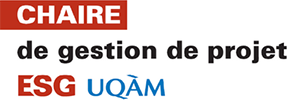Chapter written by Patrick Charland, Olivier Arvisais, Tegwen Gadais, Laurie Decarpentrie and Bernard Paquito.
Across the world, young people do not have the same opportunities to develop their potential and become well-rounded adults. The world’s population is approximately 1.8 billion young people aged 10 to 24, and about 90% of them live in developing countries within extreme development context. Optimal development of those generations depends on the resources for support, education and health and the means implemented to sustain this development. However, the imbalance of these resources is clearly observable throughout the world. Sport has been use in many developing countries to contribute to health and education for youth following Sustainable Development Goals (SDG) of the United Nations. More especially, sport is use as a leisure to generate resilience, the capacity of a person or group to develop well, to continue to project itself into the future despite destabilizing events, difficult living conditions, and severe trauma. Several authors emphasize the role of recreational activities such as physical activity and sport in the resilience process or for academic perseverance. The chapter explores the perspective and the potential of using sport for the sustainable development for health and education of youth as targeted in the SDG. More especially, we aim to understand how sport can contribute to health and education of youth through cases studies from various developing countries.








